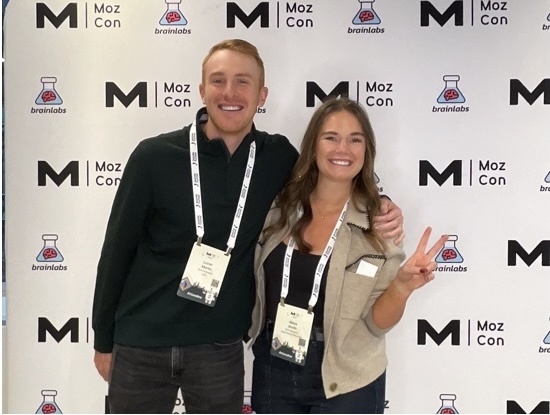If you have tuned into any major media outlet lately, you've heard of the explosion of AI-generated content like ChatGPT, and you might wonder if you still need your dedicated copywriters at GDW to craft your blogs or website pages for your digital marketing efforts.
While AI-generated content has many uses in digital marketing, it's not yet time for content writers to put their quills in their ink wells and sulk away forever just yet.
What Is AI-Generated Content?
GPT stands for Generative Pre-trained Transformer, sounding more like a droid from the Star Wars series sent to battle the Imperial Army in a galactic showdown than a content generator. AI content bots scour the web and its resources based on request-based input from the user around specific parameters. Chatbots curate results available online to answer your questions.
AI-generated content entered the mainstream market a couple of years ago. You'll often find it behind a paywall with programs like Copy AI (founded in 2020) and Jasper AI (started in 2021), but OpenAI's free ChatGPT service launched it into the news and in front of users seemingly overnight.
How GDW Leverages the Benefits of AI
Google stated that AI content for websites designed to manipulate search engine results violates its user policies and is considered spam. So, you will not have to worry about your copywriters retiring anytime soon… although the beach doesn't sound too bad this winter!
At GDW, we constantly experiment with new developments and tools to improve results for our clients. We have been testing AI in nearly every department for the past few months and have found some fun and beneficial ways to incorporate the power of AI into our workflow.
- Generating titles and H2s for original content
- Keyword research outside of our normal channels
- Content calendar plans
- Product descriptions for GMB posts
- Verifying and checking code on websites
- Creating comprehensive outlines for long- and short-form content pieces
- Using AI as a powerful thesaurus
- Topic and idea generation
- Content or source summaries
Our SEO specialists have also been focusing on how our clients rank in Bing searches and evaluating how we can scale that to benefit our clients since ChatGPT and its Microsoft partnership put Bing back on the competitive search engine map significantly by announcing integration into Bing's search capabilities.
We Protect Your Content
At GDW, we also implemented an update in February 2022 to prevent chatbot theft of your original content. We will continue to monitor its effectiveness and seek new ways to ensure your content remains unduplicated by AI.
The Limitations of AI-Generated Content
As fun as AI for dentists has been to work with over the last few months, and how much we can see its potential, it has some stark limitations (besides thinking the robots will kill us all).
Text Is Often False or Misleading
Our copywriting team performed writing experiments using AI content and found it was shockingly accurate in most cases and flat-out wrong in others. Since AI curates already existing content, accuracy is no guarantee. This could obviously be detrimental for dental offices.
For example, ChatGPT stated that you could place a crown atop a decayed tooth.
The use of AI-generated content could actually increase the amount of false or misleading content circulated online.
Some users have reported the potential bias in ChatGPT results, politically, socially, and otherwise. Since content is curated from vast online sources, biases will likely continue to appear. This is something GDW will be watching for our clients when crafting content.
Limited in Time
Currently, ChatGPT only uses information from 2021 and before. The most current data is unavailable until such services can be updated in real-time.
Lack of Empathy and Emotion
Can you imagine the chairside manner of a robot dentist? Terrifying.
Likewise, it is evident that AI content is generated by a cold, steely robot. In other words, no signs of humanness. Our copywriting team prompted ChatGPT to write content with empathy and emotion. It failed miserably and discussed the clinical steps of root canal therapy without an ounce of consideration for the anxiety of the reader.
Lack of Variety
Copywriters vary sentence length and structure to make the copy more engaging. They also pepper it with nuanced language, personal flair, and emotional elements to reach the reader, with the ultimate goal of reassuring them and encouraging them to call your practice to address their long-overdue dentistry.
AI-generated results are often long, sprawling sentences woven into weighty paragraph blocks that would leave you breathless if you tried to read them aloud. This lack of variety makes it reasonably easy to identify AI-written content at this time.
Google Says No – Sort Of?
Google states that it is against its guidelines to generate content designed to manipulate search results. Sticking to people-first, helpful content is still rewarded in SEO rankings.
Content should reflect expertise, experience, authoritativeness, and trustworthiness. It should reflect your practice and brand. You can read more about that here on our blog.
In typical Google ambiguity, Google does not explicitly say that AI content will be penalized in all cases. However, they assure users that they have algorithms created to detect and penalize websites using it to manipulate search results until further notice.
What about AI Images for Use on Websites?
Our team also played around with AI images for dentists using Dall-E 2 on OpenAI, and the results were mixed. Some images were surprisingly lifelike; others were downright creepy. Really creepy. We focused on dental marketing images for comparison.
They say the eyes are the windows to the soul. Let's say that most of these images betrayed their robotic makers with a slightly askew eyeball and a sinister smile. Some were passable, but we won't be using them on websites anytime soon. It goes without saying that if you decide to use them, you should put a disclaimer on your site for transparency.
As for Google's stance? So far, Google doesn't seem to have anything prohibiting the use of AI-generated images, but that could change. We will be keeping our non-robot eyes on this.
The Future of AI at GDW
We are committed to providing exceptional, content-focused results for our clients as a team. In that spirit, we will continue experimenting with AI content for dentists and leveraging its benefits for our clients where and when it makes sense. As always, we follow industry recommendations, rules, and user guidelines when creating content for your website–custom content still means human content.


.png)



